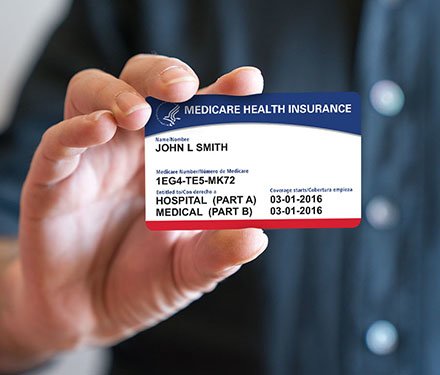Medicare Resource Center


If you are in an MA plan, either a PPO or HMO, you do not need to show your Medicare card. Since you do not need to bring it with you to any health care services (only your medical plan ID card), it is important to keep it in a safe place at home, along with other important documents. You may need your card in the future if you decide to dis-enroll from an MA plan.
Traditional Care Network (TCN) Members
If you are in the TCN plan, it is important to keep your card on you at all times, along with your medical plan ID card. Any time you receive a health care service, you will need to present them your card. Under this plan, Medicare is the primary payer of health care expenses and your Blue Cross TCN plan is secondary. If you forget your card, most health care facilities can look up your card number online.
Other Reminders
- Only trusted people or health care professionals should have access to your Medicare number.
- Be aware of scams, Medicare will never call you requesting personal information. If someone calls and asks you for information or threatens to cancel your benefits, do not share your information. Hang up and call Medicare directly.
- If you lose your card, you can call Medicare at 1-800-633-4227 to get it replaced. If you are a Text Telephone (TTY) user, you can call 1-877-486-2048
For other questions about your new card, visit medicare.gov/newcard/.
Medicare Overview
Medicare is a federal health care program for people that are age 65 or older, those that are under 65 with certain disabilities, and people of any age with End-Stage Renal Disease (permanent kidney failure requiring dialysis or a kidney transplant). Medicare has four parts:
Medicare Part A
Hospital Insurance. Generally, there is no monthly premium, but there are annual deductibles and co-insurance after certain lengths of stay.
Medicare Part B
Medical Insurance. Part B requires payment of a monthly premium, as well as Deductibles and Co-insurance. You should enroll in Part B when first eligible to avoid a financial penalty and a potential delay in your enrollment.
Medicare Part C
Medicare Advantage Plans. Health plan options approved by Medicare and administered by private companies.
Medicare Part D
Prescription Drug Coverage. Provided through plans run by insurance companies or other private companies approved by Medicare.
Medicare Parts A and B are available for every individual who is age 65 or older and is entitled to monthly Social Security benefits, or is a qualified Railroad Retirement beneficiary. If you are receiving Social Security or Railroad Retirement benefits, you will automatically be eligible for Part A and Part B starting the first day of the month in which you turn age 65. You must contact the Social Security Administration for enrollment. You should receive your Medicare card in the mail three months before your 65th birthday. Part B premiums will be deducted from your Social Security benefits.
If you are not receiving Social Security already, it is your responsibility to contact the local Social Security Administration office to apply for Medicare when you reach age 65. The Social Security Administration suggests that you contact them at least three months before you reach age 65. This will allow sufficient time to process your application so that you will not miss your initial opportunity for enrollment. If you do not enroll for Medicare Part B when first eligible, a financial penalty will apply, increasing the monthly Medicare Part B premium you pay.
Individuals under age 65 who are entitled to disability benefits under the Social Security or Railroad Retirement Acts for at least 24 consecutive months also are entitled to Medicare Parts A and B. Coverage begins on the first day of the 25th month of entitlement to disability benefits and terminates at the end of the month following the month in which the Social Security Administration provides notice of termination of disability benefits.
Resources | |||
| Social Security Administration | www.ssa.gov | 800-772-1213 | Locate your nearest office |
| Medicare | www.medicare.gov | Download Medicare.gov's official government handbook | |

